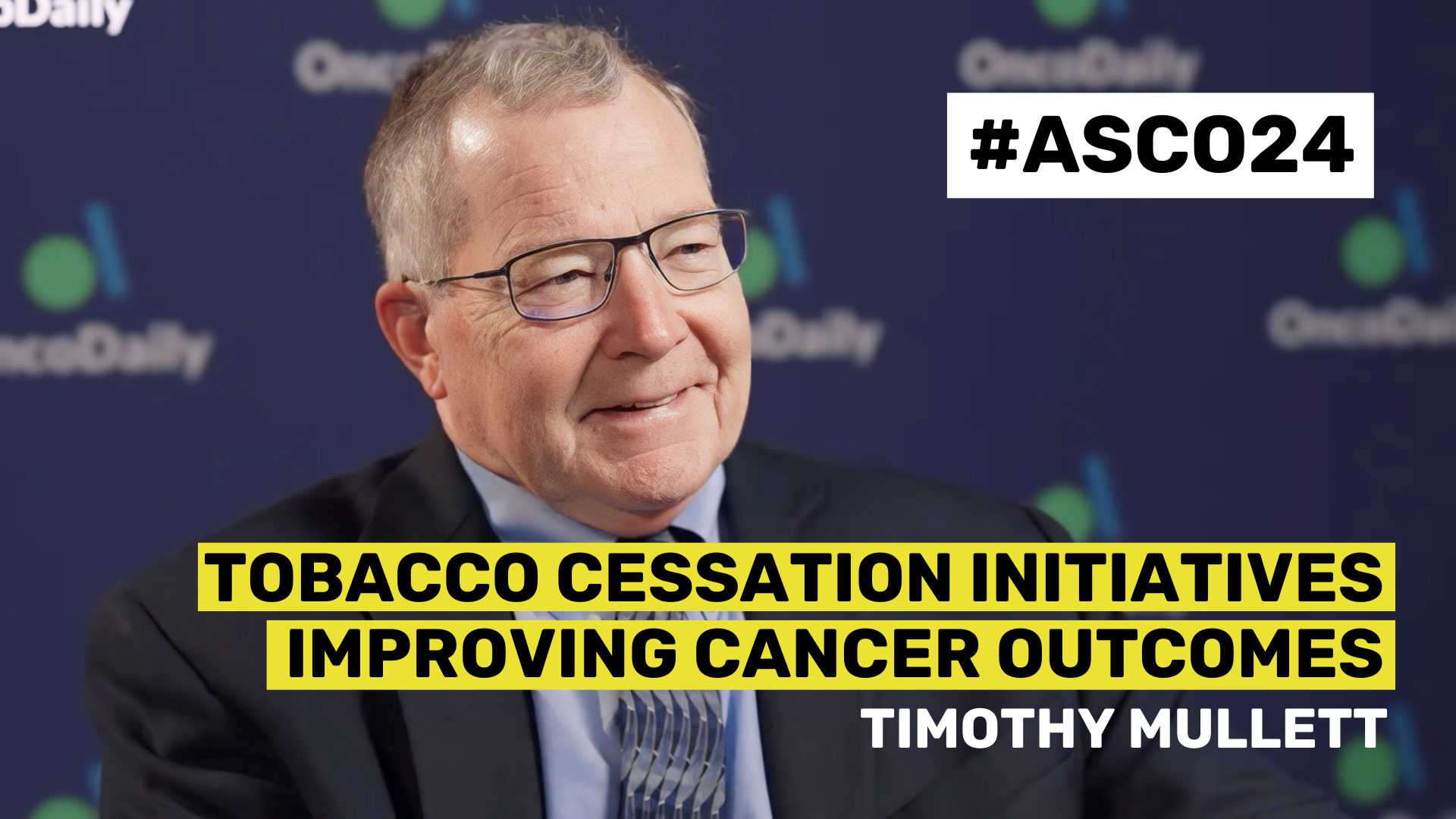The American Society of Clinical Oncology (ASCO) Annual Meeting is one of the largest and most prestigious conferences in the field of oncology. This year, the meeting took place from May 31 to June 4 in Chicago, Illinois. The event gathers oncologists, researchers, and healthcare professionals from around the world to discuss the latest advancements in cancer research, treatment, and patient care. Keynote sessions, research presentations, and panel discussions are typically part of the agenda, providing attendees with valuable insights into emerging trends and innovations in oncology.
This year, OncoDaily was at ASCO 2024 for the first time covering the meeting on-site. We had the pleasure of interviewing researchers who summarized the highlights of their work.
In this video, Dr. Timothy Mullett, a thoracic surgeon at the University of Kentucky and Chair of the American College of Surgeons Commission on Cancer, shared insights on ‘Improving delivery of smoking cessation assistance for patients with cancer: Results of the Beyond ASK quality improvement’
Hello, I’m Tim Mullett. I’m a thoracic surgeon at the University of Kentucky and also serve as the chair of the American College of Surgeons Commission on Cancer. Our opportunity to present at ASCO centered around a couple of quality improvement projects that we developed using a national expert panel and ultimately were able to roll this out offering it to our 1,500 cancer programs across the country.
The Commission on Cancer represents a spectrum of programs, large and small, but in our data collection we have over 76% of the cancer patients that are represented. So we felt that this would be a good platform for us to be able to explore how we can influence tobacco treatment in cancer patients. So our first exploration was to offer a quality improvement in tobacco assessment during the cancer experience.
So for patients with a newly diagnosed cancer undergoing treatment of any kind we wanted to make certain that they were being assessed for their use of tobacco. The project was quite successful increasing the assessment of tobacco from approximately 80% to 98% over 730 programs across the country. The second project that we developed was to take that knowledge of knowing that we could increase the assessment of tobacco and how we could influence those programs that participate to be able to increase the assistance of patients to referral to tobacco treatment.
And so we developed a series of practice change interventions and we then explored ways that over 300 programs were going to be able to try and assist more patients into tobacco treatment. We were able to get our assist rates up to 68% in those 300 programs that participated. The bottom line is that through the course of these two projects we had over 700,000 patients influenced by the first assessment of assessing patients for tobacco use and nearly 300,000 patients through the second project of increasing their assistance into tobacco treatment.
So nearly a million patients were influenced by these two quality improvement projects to try and recognize the dangers of tobacco use during a cancer diagnosis and to appreciate the increased survival of these patients, decreasing complication rates and increasing adherence to their full cancer treatment. So we feel that this is a novel and interesting way for us to use national quality improvement projects to change practice behavior.
More videos and content from ASCO 2024 on OncoDaily.
